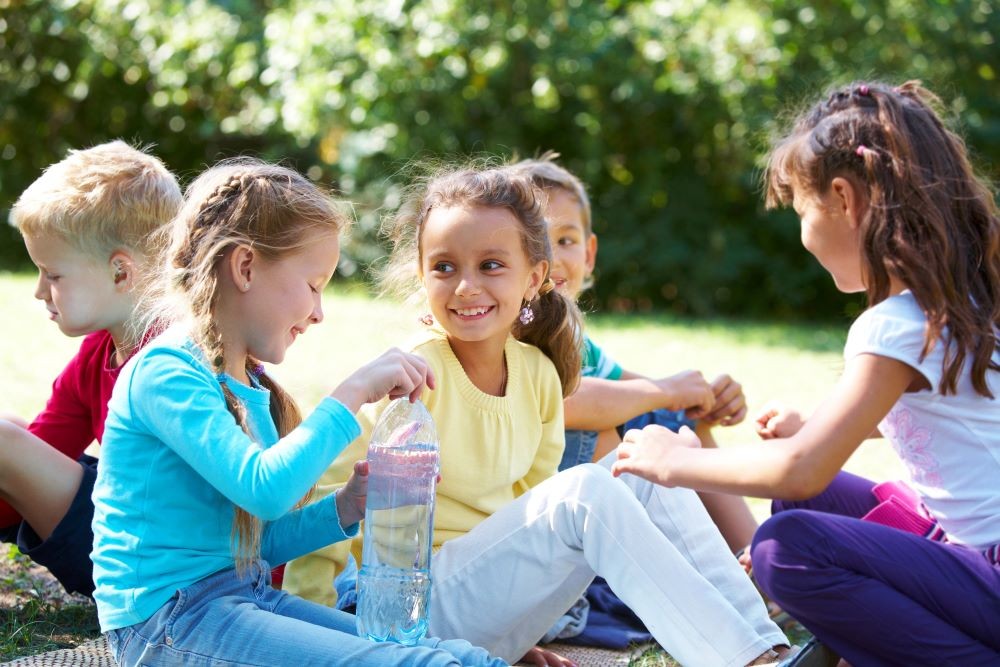Building Empathy in Children and Teens: A Parent’s Guide to Raising Compassionate Young People
Developing empathy is a crucial part of child (and adult!) development. Empathy is the ability to put oneself in the shoes of others, and be able to share those feelings, and is thought to be both a moral virtue, but also an important social skill.
Empathy helps children build strong friendships, manage conflicts, and become caring adults. Although some biological factors (such as genes, prenatal factors, or certain neuro-developmental conditions) can influence the ability of children to feel empathy, many scientists believe that empathy is something that is learned through interactions with parents, peers, neighborhood, community, and culture/religion. For parents, caregivers, and providers, this is great news, as this means that for most children and young adults, empathy is something that can be modeled and taught!
Several psychologists have already identified research-backed ways parents and caregivers can help their child or teen grow into an empathetic and emotionally intelligent person. Below are some possible solutions:
- Practice Social-Emotional Learning at Home
Social-emotional learning (or SEL) teaches children how to recognize emotions, manage them, and build healthy relationships. Schools that use SEL programs like Second Step or PATHS have seen increases in empathy and kindness among students, as well as students reporting higher levels of self-esteem and self-efficacy.
What you can do at home:
- Talk with your child about how they feel and why.
- Ask questions that cultivate curiosity about other people and their feelings, such as “How do you think your friend felt when that happened?”
- Use books and movies to discuss characters’ emotions and choices.
- Encourage Perspective-Taking
Empathy starts with the ability to see things from another person’s point of view. Young kids may struggle with this, but you can help them build this skill over time.
Try this:
- During disagreements, ask, “If you were in their shoes, how would you feel?”
- Encourage your child to imagine how others might be thinking—even if they don’t agree.
- Use storytelling and pretend play to explore different roles and feelings.
- When watching movies, reading books, or engaging with the news, ask your child what they imagine certain people are thinking or feeling.
- Model Empathy Every Day
For over 50 years psychologists have found that the biggest model for children are their parents, and that whether parents mean it or not, children learn behaviors and skills from just watching their parents! How you respond to them, and to others in daily life, sends a powerful message.
Set the tone by:
- Naming and validating your child’s emotions (“It’s okay to feel frustrated.”)
- Showing kindness to others—hold the door, offer help, thank people, volunteer and help others in your on community.
- Talking out loud about your own empathy (“I think she’s having a tough day—I’m going to check in on her because I would want that if I were in her shoes.”)
- Use Mindfulness to Build Emotional Awareness
Recently, psychologists have discovered that mindfulness can help children develop empathy by teaching them to slow down, recognize their feelings, and become more aware of and curious about others. Studies indicate that kids who practice mindfulness are more calm, focused, and compassionate toward others.
Simple ways to start:
- Try a short breathing exercise together before bed.
- Ask your child to notice how their body feels when they’re upset or happy.
- Help your child be curious about their own feelings using guided meditations.
- Practice mindful listening—really paying attention when someone talks without just trying to identify what to say next, and help teach your child how to do this as well.
- Volunteer Together
Helping others is one of the best ways to teach empathy. Volunteering shows children how their actions affect others—and gives them a chance to make a difference.
Ideas include:
- Making cards for seniors or hospital patients
- Donating gently used toys or clothes
- Participating in community clean-ups or charity events
- Volunteering time or resources to soup kitchens, food pantries, or similar.
Afterward, talk about how it felt to help and what others might have felt receiving their kindness.
In addition to using these skills and technique, studies have shown that other environmental factors can also play a role in the development of empathy in children and young adults, including ensuring the child feels like they are in a stable family, they like their school, they have friends they are close to, and they feel safe in their community, are all found to be related to developing positive empathy. Parents and caregivers may want to check in with their child to ensure that they feel safe, liked, and supported by their family and community.
Occasionally, some issues could negatively impact a child or young adult, which could impede their ability to empathize with others. Trauma, depression, ADHD, and social anxiety can all prevent a child or young adult from developing empathy for various different reasons. In cases like this, consulting with a mental healthcare provider may prove helpful. If you would like to speak with Dr. Robokos or a member of our team on how to cultivate empathy or on any of these issues, please do not hesitate to reach out.



